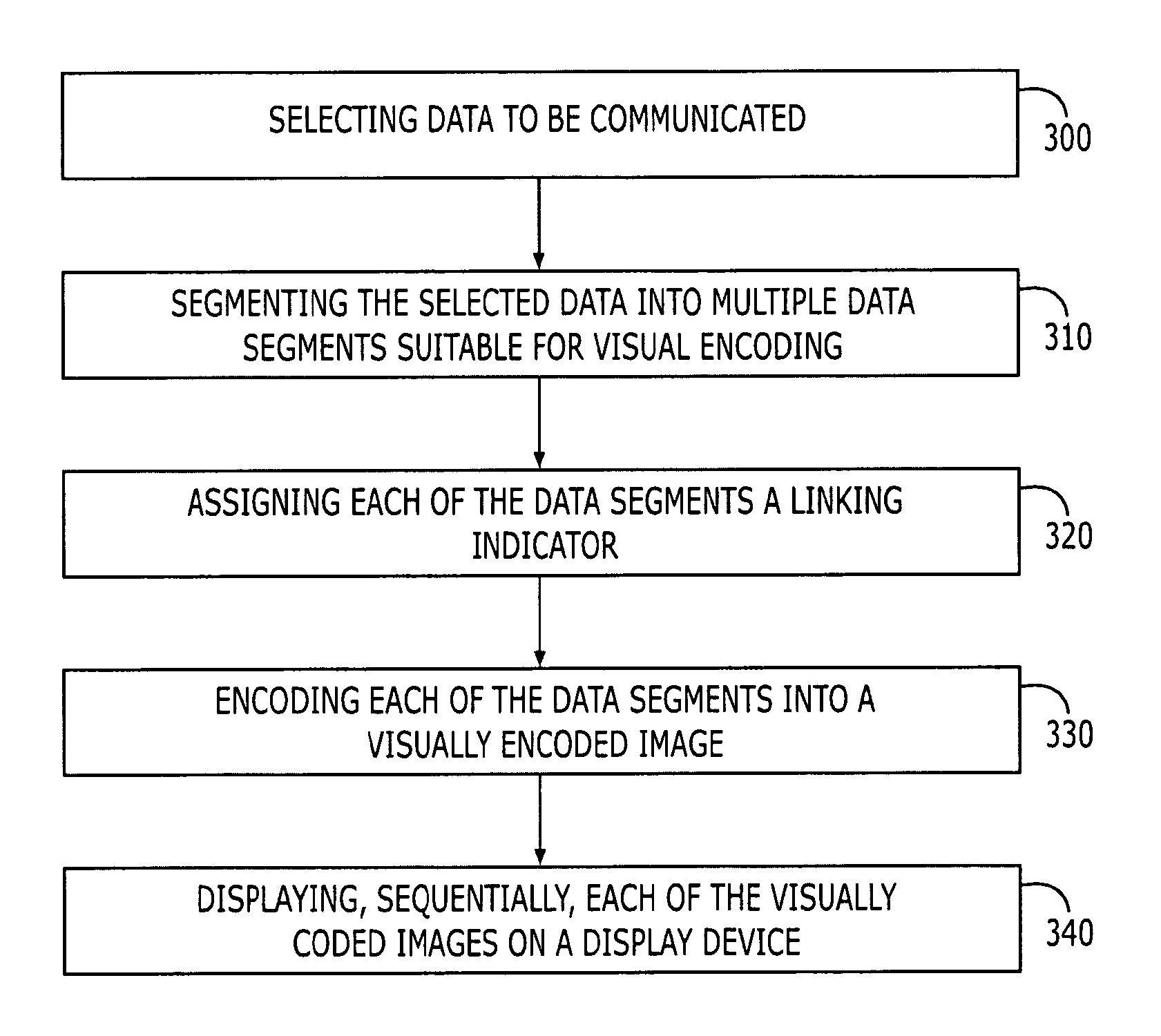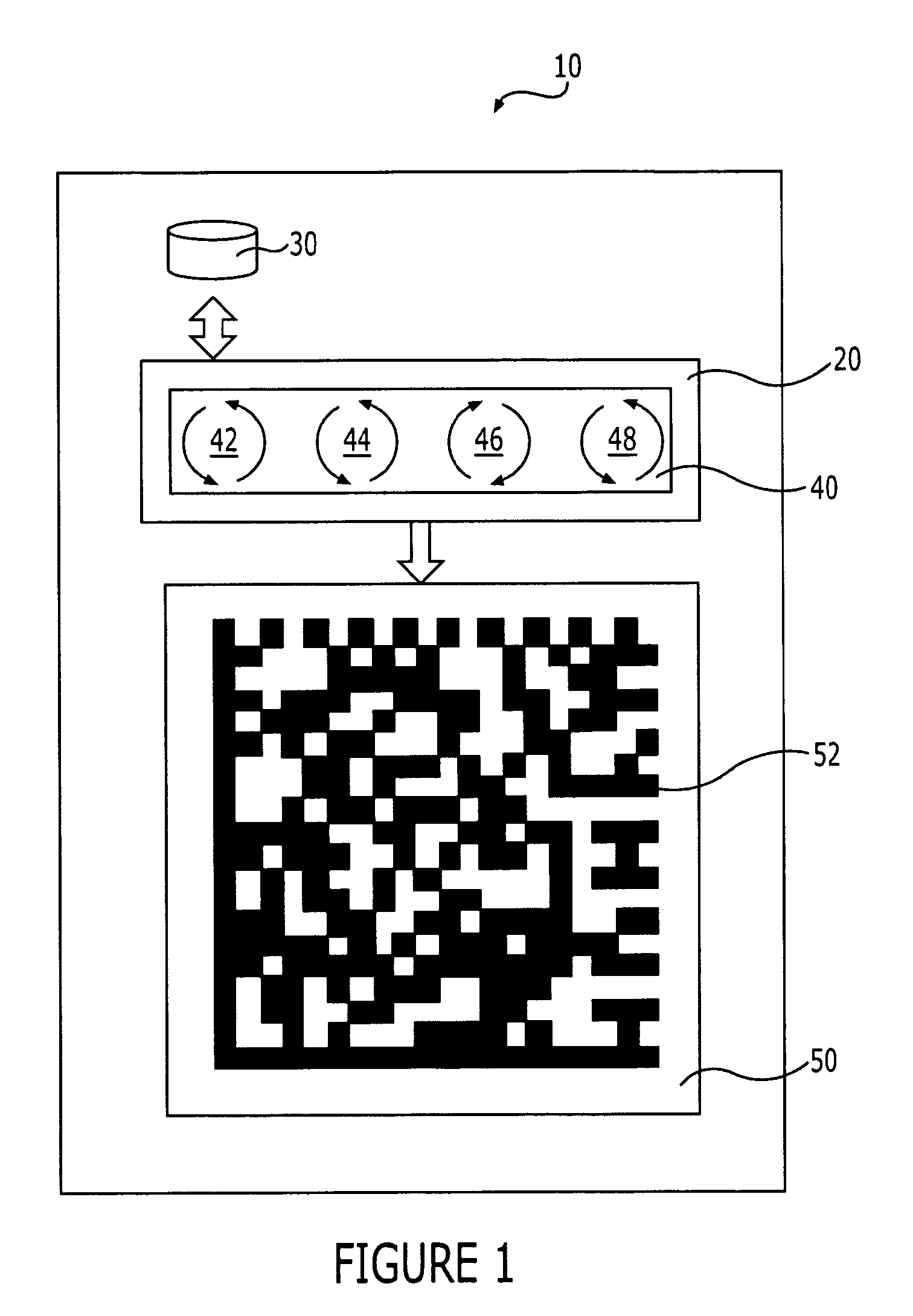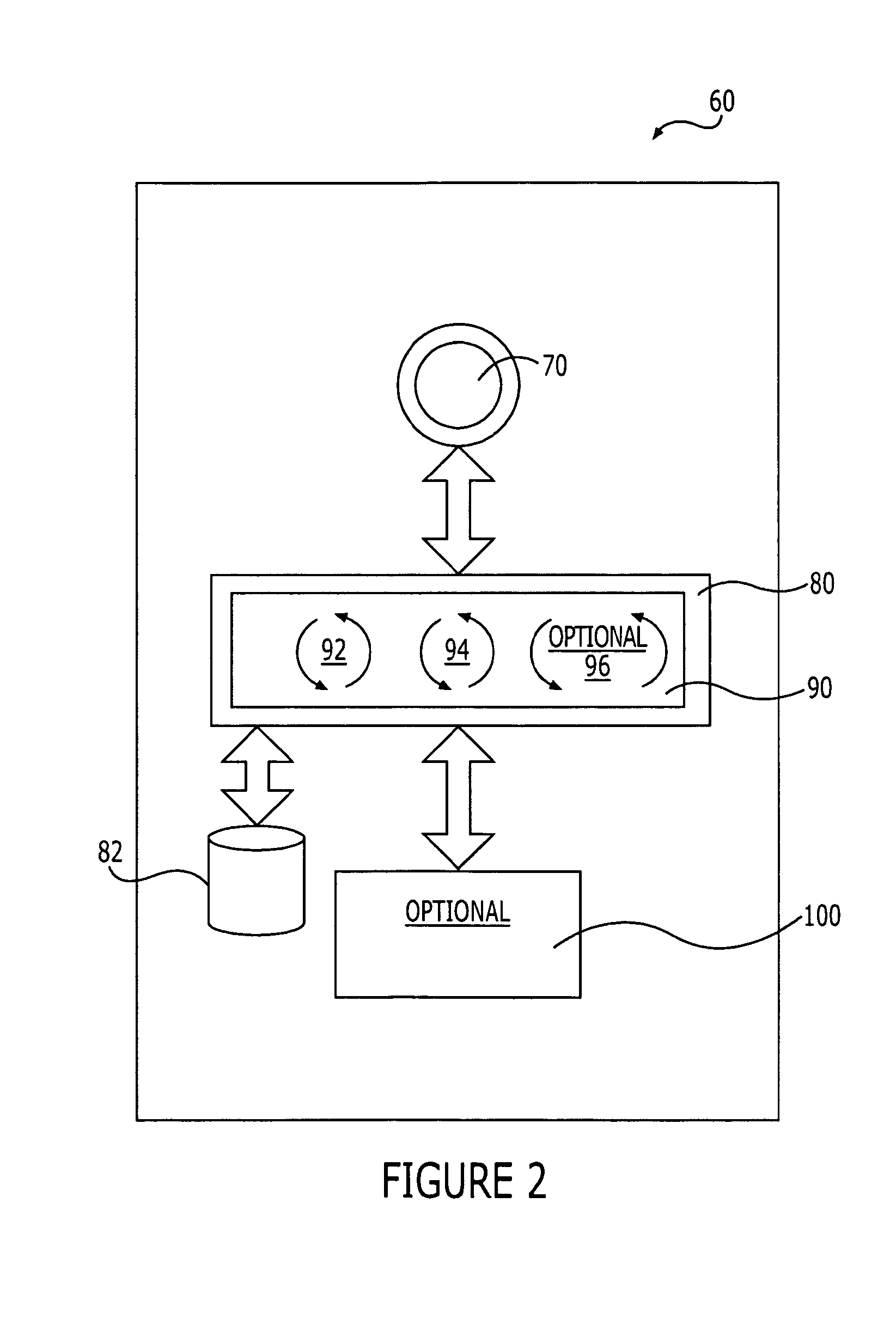Methods, devices and computer program products for generating, displaying and capturing a series of images of visually encoded data
a technology images, applied in the field of visual encoded data, can solve the problems of limited amount of information that can be stored and transmitted by tags, and high cost of tags, and achieve the effects of economic prohibitiveness, high cost of tags, and high cos
- Summary
- Abstract
- Description
- Claims
- Application Information
AI Technical Summary
Benefits of technology
Problems solved by technology
Method used
Image
Examples
Embodiment Construction
[0031]The present invention now will be described more fully hereinafter with reference to the accompanying drawings, in which preferred embodiments of the invention are shown. This invention may, however, be embodied in many different forms and should not be construed as limited to the embodiments set forth herein; rather, these embodiments are provided so that this disclosure will be thorough and complete, and will fully convey the scope of the invention to those skilled in the art. Like numbers refer to like elements throughout.
[0032]The present invention provides methods, devices, computer program products and systems that provide for transferring relatively large amounts of data using visually encoded images, such as barcodes. Typically, visually encoded images, such as barcodes, are limited in the amount of data that they can store and, thus, transfer. The present invention overcomes this limitation by providing for methods that segment a large volume data set, encode each seg...
PUM
 Login to View More
Login to View More Abstract
Description
Claims
Application Information
 Login to View More
Login to View More - R&D
- Intellectual Property
- Life Sciences
- Materials
- Tech Scout
- Unparalleled Data Quality
- Higher Quality Content
- 60% Fewer Hallucinations
Browse by: Latest US Patents, China's latest patents, Technical Efficacy Thesaurus, Application Domain, Technology Topic, Popular Technical Reports.
© 2025 PatSnap. All rights reserved.Legal|Privacy policy|Modern Slavery Act Transparency Statement|Sitemap|About US| Contact US: help@patsnap.com



